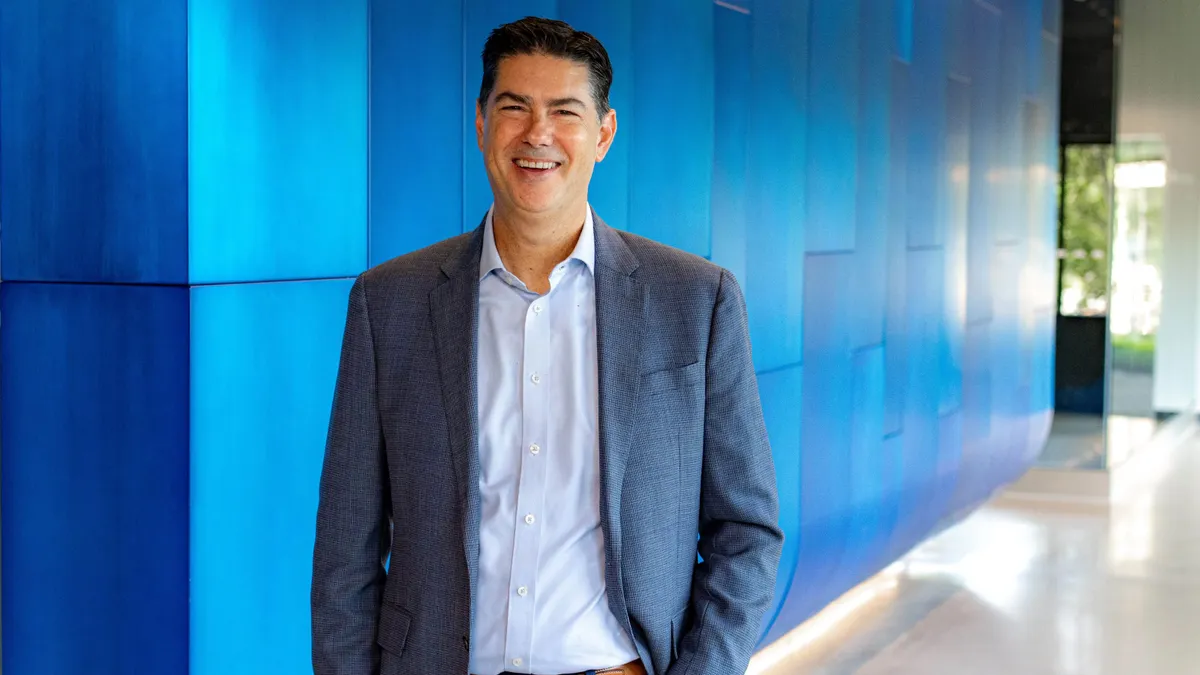The construction industry is in the midst of a severe skilled-labor shortage, both in the field and in management positions. While contractors are recruiting from the available pool of existing workers, many are also looking to college and university construction programs to help fill the gap.
In today’s market, construction companies and school officials know that new graduates need to hit the ground running when they enter the workforce and be able to thrive in a high-stakes industry full of colorful personalities and tight deadlines — the stuff no book can teach.
To that end, more post-secondary programs are engaging with the construction industry to bring a little bit of real-world practice into the classroom.
Where the industry meets the classroom
"If we can’t get students out to the industry, our goal is to bring the industry here," said Nicole Green, marketing and recruiting coordinator for the Middle Tennessee State University concrete industry management program.
Green said there are usually multiple employers on campus each week willing to help prepare students through lectures, career advice and other activities.
Students who complete the MTSU program earn a bachelor's degree in either concrete contracting or production, sales and service, but also learn general industry principles that can earn them positions at large general contractors, subcontractors, concrete manufacturers or any other business that needs that expertise.
"There are lots of opportunities for teaching when your classroom becomes the construction site."

Barbara Jackson
Director of the Burns School of Real Estate and Construction Management at the University of Denver
Green said she emphasizes to students who are getting ready to enter the workforce that, just like the rest of the construction sector, concrete is an industry that requires strong interpersonal skills. Those lessons, she said, are almost as important as the ones related to more technical aspects.
At Burns School of Real Estate and Construction Management at the University of Denver's Daniels College of Business, real-world experience is also a focus for Barbara Jackson, the director of the program. From an annual playhouse project to a potential future involvement in a large-scale tiny house program in Denver, she tries to expose students to as many representative construction projects as possible.
Students complete the projects themselves and have even worked with a full-size crane picking up 5-foot by 5-foot wall panels to learn about crane operations and safety.
Through these projects, Jackson said, students learn about supply chain, management, estimating, marketing and financing — or as many construction processes and business angles as possible. "There are lots of opportunities for teaching when your classroom becomes the construction site," she said.
In fact, Jackson packs in as many "value-added education opportunities" as she can, like professional experience seminars where students run through a job site injury scenario or other advanced workshops for her students, even if that means staying late or working on the weekends. And local construction companies that want to lay claim to graduates are strong participants in those programs. "Students respond to that environment," she said.
Tapping the pool of new talent
One of the benefits of company-student interaction is the fact that contractors are able to access an in-demand supply of well-educated employees. In fact, Green said, some companies start one-on-one engagement with students as early as their freshman year, hiring them as interns in order to lock them in at graduation.
Green said she has students with $20 per hour summer jobs with some construction firms, plus a company vehicle. "[Construction companies] are treating interns very well in the hope of garnering loyalty and bringing them on full-time," she said.
It’s no surprise that employers feel the heat of competition, as MTSU concrete program graduates average eight to nine job offers each.
Headquartered in Boston and with offices around the county, Suffolk Construction has relationships with a number of university construction programs, and Julie Palmer, director of people and culture at the company’s South Florida office, said the firm draws graduates from all Florida schools.
"[Construction companies] are treating interns very well in the hope of garnering loyalty and bringing them on full-time."

Nicole Green
Marketing and recruiting coordinator for the Middle Tennessee State University concrete industry management program
Suffolk executives also make themselves available, particularly to Florida International University, if schools need mentoring, a guest speaker or practical advice. This has created a strong bond between the school and Suffolk, which is beneficial at recruiting time. "Our learning culture and word of mouth is one of the best sellers for the organization," Palmer said.
Once on board, she said, all graduates have an 18-month period of rotation through different departments via the company’s Career Start program so that they can have exposure to all aspects of the business and determine which area they fit into the best — a program that has yielded a few surprises.
"More and more, we're seeing a trend of switching to the superintendent side," she said. At one point, most students were coming into the company expressing a desire to be project managers, but Palmer said experience in different jobs during the rotation period has made some think twice about a desk job.
However, it’s not a one-way street at Suffolk. Palmer said students are encouraged to present their own ideas, and the company’s executives have an open-door policy. After all, she said, these are the people who will be running the company one day, and they’re encouraged to "think outside the box."
The benefits of proximity
Of course, it is helpful when the contractor is actually performing work onsite. Alamo Colleges District in San Antonio is a repeat customer for Skanska USA. Because the company is performing a large addition at Alamo's St. Philip's College, the Turbon Student Center, students in the construction technology program were able to visit the site and see first-hand what they were learning in the classroom, according to Sonny Knox, Skanska USA senior project manager.
Knox said he took students through the company’s entire subcontractor orientation program, let them review project drawings and gave students a site tour, complete with their own personal protective equipment.
Gilbert Noriega, construction technology program coordinator at St. Philip's, said this opportunity was particularly beneficial for students who focus on residential and light commercial construction in the classroom. "For them to walk into this giant building — students were amazed," he said. "It was a great thing. I wish it could happen more often."





















